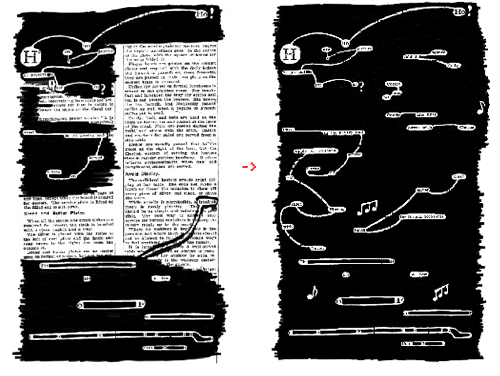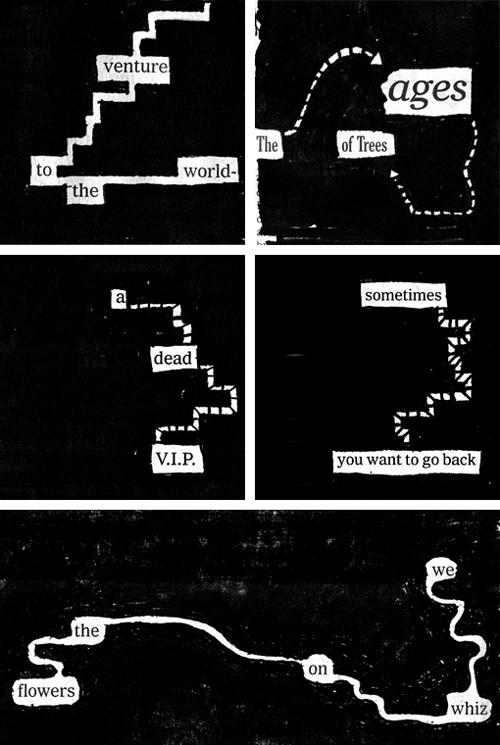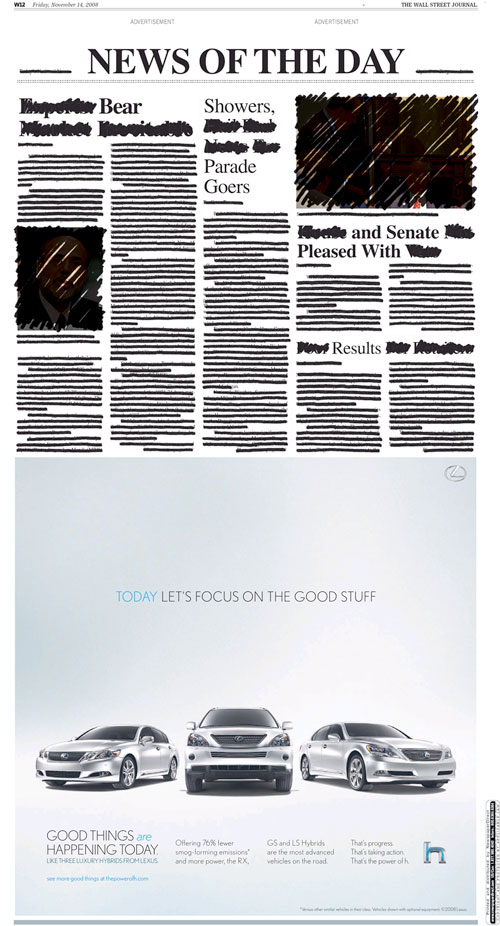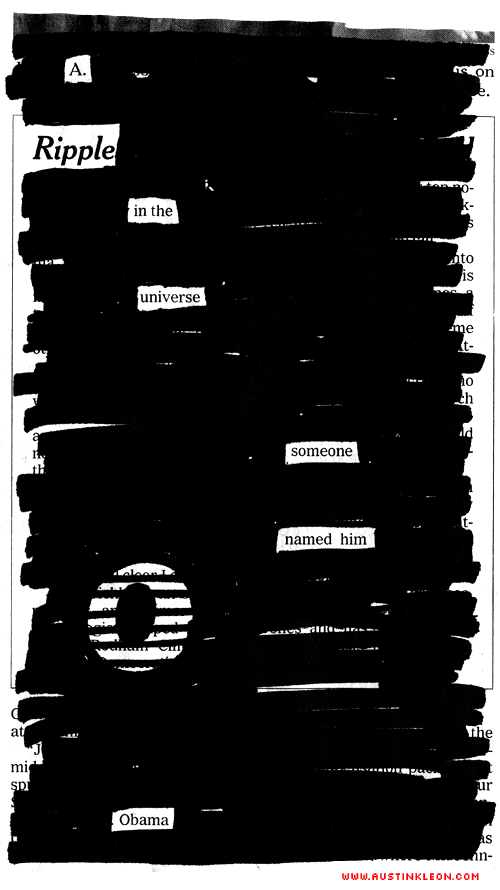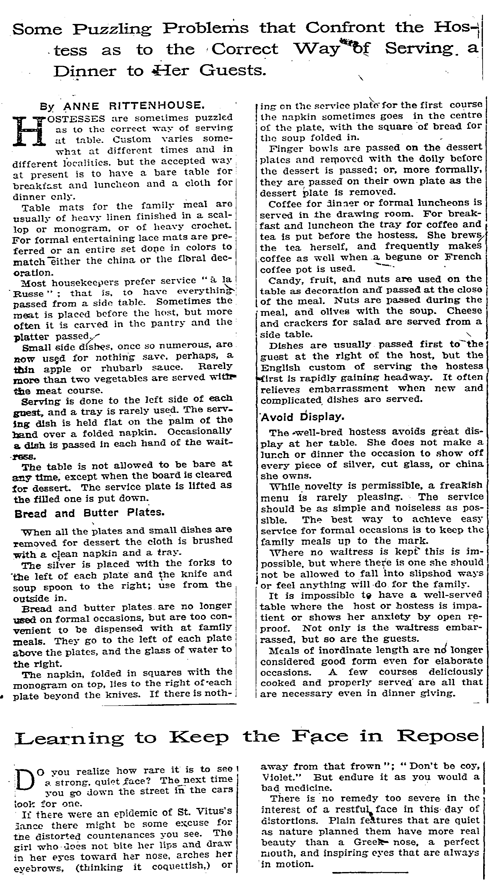A lot of good entries this month, but the winner was Erica Westcott of Virginia Beach, VA, for her poem, “Enigma.”
I love the restraint Erica showed in this poem and the top-heavy black space. Here’s what she had to say about the making of it:
I am a mild mannered histology technician by day, and in my spare time I enjoy skydiving, knitting, and reading. After stumbling across your blog and admiring all the blackout poems, I thought I’d try my hand at one. They looked pretty easy, something to pass my lunch hour at work: just pick out a few words and string them together somehow, sort of like refrigerator magnet poetry. Wrong! I struggled for several days before coming up with something that sounded and looked just right. (Rarely is the structural appearance of what I write as important as the words themselves.) The subject matter of the original newspaper article was an amusing distraction, too. I never imagined the travails of a hostess — who knew! — mixed with a snippet of a second article could all be pared down and curiously transformed into poetry at the end.
Our runner-ups: Sarah Reyes from Newtown, PA, Brandon Weaver from La Mirada, CA, and Amy E. Hall from Franklin, TN.
Congratulations, Erica, Sarah, Brandon, and Amy! Y’all will get your free books next September.
And an honorable mention goes out to Nick Wiesneski, who just couldn’t get it together in time to make the deadline, but finished his poem anyways, and sent it in in-progress and completed:
You can see all the winners of the contest in the Newspaper Blackout Poems Flickr Pool, and add your own to the mix!
A big thank-you to everyone who entered the four contests. Y’all were great.
Posting around here for the next month or so might be pretty slow, as I’m in the home stretch of finishing up the book manuscript. If you’re dying for more blackout action, check out this interview I did via e-mail with Mitch Knox, a journalism student from Australia, where we discuss the contest, the book, and Garfield Minus Garfield, amongst other things.
And stay tuned for fun stuff planned for January! I’m thinking about having an international contest, where y’all can send me whatever you want (as long as it’s in English and I can read it). I’ll pick a winner, or winners, and send them a signed copy out of my own personal stash. So keep practicing!

